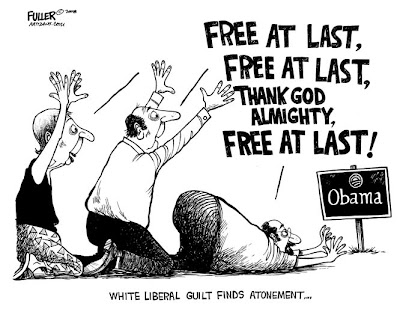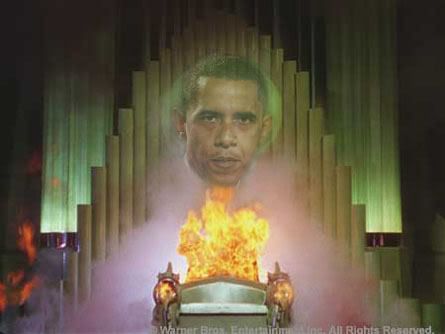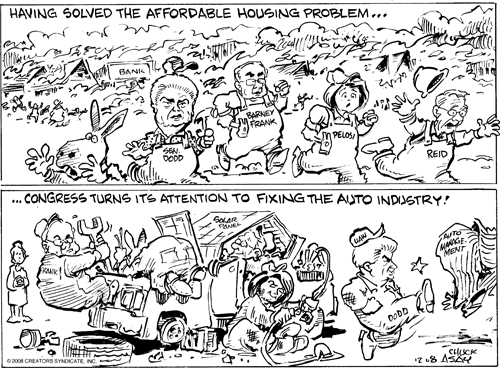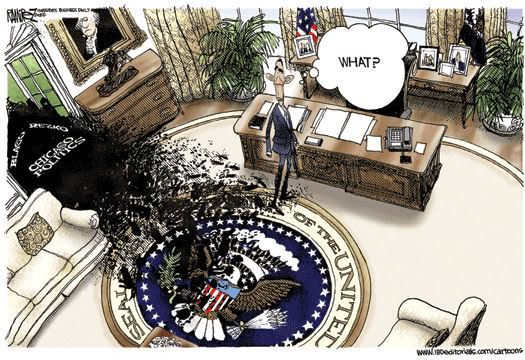Back in 2006, when Mr. Obama was writing his second autobiography, his hope was that international competition of the global economy would be enough of a problem to trigger the government to take action.
Opportunity

YOU’LL GET LITTLE argument these days, from either the left or the right, with the notion that we’re going through a fundamental economic transformation. Advances in digital technology, fiber optics, the Internet, satellites, and transportation have effectively leveled the economic barriers between countries and continents. Pools of capital scour the earth in search of the best returns, with trillions of dollars moving across borders with only a few keystrokes…
But there’s also no denying that globalization has greatly increased economic instability for millions of ordinary Americans. To stay competitive and keep investors happy in the global marketplace, U.S.-based companies have automated, downsized, outsourced, and offshored. They’ve held the line on wage increases, and replaced defined-benefit health and retirement plans with 401(k)s and Health Savings Accounts that shift more cost and risk onto workers.
The result has been the emergence of what some call a “winner-take-all” economy, in which a rising tide doesn’t necessarily lift all boats. Over the past decade, we’ve seen strong economic growth but anemic job growth; big leaps in productivity but flatlining wages; hefty corporate profits, but a shrinking share of those profits going to workers…
For the most part, though, the Republican economic agenda under President Bush has been devoted to tax cuts, reduced regulation, the privatization of government services— and more tax cuts.
Administration officials call this the Ownership Society, but most of its central tenets have been staples of laissez-faire economics since at least the 1930s: a belief that a sharp reduction—or in some cases, elimination—of taxes on incomes, large estates, capital gains, and dividends will encourage capital formation, higher savings rates, more business investment, and greater economic growth; a belief that government regulation inhibits and distorts the efficient working of the market; and a belief that government entitlement programs are inherently inefficient, breed dependency, and reduce individual responsibility, initiative, and choice.
Or, as Ronald Reagan succinctly put it: “Government is not the solution to our problem; government is the problem.” …
What is clear is that the sea of red ink has made it more difficult for future administrations to initiate any new investments to address the economic challenges of globalization or to strengthen America’s social safety net…
But over the long term, doing nothing probably means an America very different from the one most of us grew up in. It will mean a nation even more stratified economically and socially than it currently is: one in which an increasingly prosperous knowledge class, living in exclusive enclaves, will be able to purchase whatever they want on the marketplace—private schools, private health care, private security, and private jets— while a growing number of their fellow citizens are consigned to low-paying service jobs, vulnerable to dislocation, pressed to work longer hours, dependent on an underfunded, overburdened, and underperforming public sector for their health care, their retirement, and their children’s educations.
It will mean an America in which we continue to mortgage our assets to foreign lenders and expose ourselves to the whims of oil producers; an America in which we underinvest in the basic scientific research and workforce training that will determine our long-term economic prospects and neglect potential environmental crises.
It will mean an America that’s more politically polarized and more politically unstable, as economic frustration boils over and leads people to turn on each other.
Worst of all, it will mean fewer opportunities for younger Americans, a decline in the upward mobility that’s been at the heart of this country’s promise since its founding.
That’s not the America we want for ourselves or our children. And I’m confident that we have the talent and the resources to create a better future, a future in which the economy grows and prosperity is shared. What’s preventing us from shaping that future isn’t the absence of good ideas. It’s the absence of a national commitment to take the tough steps necessary to make America more competitive—and the absence of a new consensus around the appropriate role of government in the marketplace.
TO BUILD THAT consensus, we need to take a look at how our market system has evolved over time…
Our greatest asset has been our system of social organization, a system that for generations has encouraged constant innovation, individual initiative, and the efficient allocation of resources.
It should come as no surprise, then, that we have a tendency to take our free-market system as a given, to assume that it flows naturally from the laws of supply and demand and Adam Smith’s invisible hand. And from this assumption, it’s not much of a leap to assume that any government intrusion into the magical workings of the market— whether through taxation, regulation, lawsuits, tariffs, labor protections, or spending on entitlements—necessarily undermines private enterprise and inhibits economic growth. The bankruptcy of communism and socialism as alternative means of economic organization has only reinforced this assumption. In our standard economics textbooks and in our modern political debates, laissez-faire is the default rule; anyone who would challenge it swims against the prevailing tide.
It’s useful to remind ourselves, then, that our free-market system is the result neither of natural law nor of divine providence. Rather, it emerged through a painful process of trial and error, a series of difficult choices between efficiency and fairness, stability and change. And although the benefits of our free-market system have mostly derived from the individual efforts of generations of men and women pursuing their own vision of happiness, in each and every period of great economic upheaval and transition we’ve depended on government action to open up opportunity, encourage competition, and make the market work better.
In broad outline, government action has taken three forms. First, government has been called upon throughout our history to build the infrastructure, train the workforce, and otherwise lay the foundations necessary for economic growth. All the Founding Fathers recognized the connection between private property and liberty, but it was Alexander Hamilton who also recognized the vast potential of a national economy—one based not on America’s agrarian past but on a commercial and industrial future. To realize this potential, Hamilton argued, America needed a strong and active national government, and as America’s first Treasury secretary he set about putting his ideas to work. He nationalized the Revolutionary War debt, which not only stitched together the economies of the individual states but helped spur a national system of credit and fluid capital markets. He promoted policies—from strong patent laws to high tariffs—to encourage American manufacturing, and proposed investment in roads and bridges needed to move products to market…
This tradition, of government investment in America’s physical infrastructure and in its people, was thoroughly embraced by Abraham Lincoln and the early Republican Party. For Lincoln, the essence of America was opportunity, the ability of “free labor” to advance in life. Lincoln considered capitalism the best means of creating such opportunity, but he also saw how the transition from an agricultural to an industrial society was disrupting lives and destroying communities.
So in the midst of civil war, Lincoln embarked on a series of policies that not only laid the groundwork for a fully integrated national economy but extended the ladders of opportunity downward to reach more and more people. He pushed for the construction of the first transcontinental railroad. He incorporated the National Academy of Sciences, to spur basic research and scientific discovery that could lead to new technology and commercial applications. He passed the landmark Homestead Act of 1862, which turned over vast amounts of public land across the western United States to settlers from the East and immigrants from around the world, so that they, too, could claim a stake in the nation’s growing economy. And then, rather than leave these homesteaders to fend for themselves, he created a system of land grant colleges to instruct farmers on the latest agricultural techniques, and to provide them the liberal education that would allow them to dream beyond the confines of life on the farm.
Hamilton’s and Lincoln’s basic insight—that the resources and power of the national government can facilitate, rather than supplant, a vibrant free market—has continued to be one of the cornerstones of both Republican and Democratic policies at every stage of America’s development.
More »
 to Rush ( His idea during the Clinton plague upon America ) I am starting a file on “The One,” mostly starting from the election date.
to Rush ( His idea during the Clinton plague upon America ) I am starting a file on “The One,” mostly starting from the election date. 







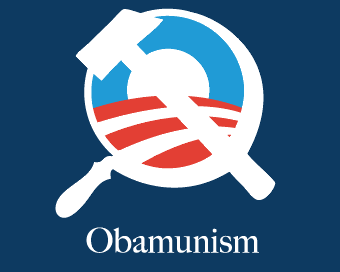

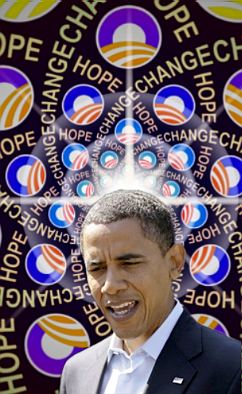 The election results were long expected, but now that the day has arrived it’s quite a letdown, anyway. Reading about the joy expressed by Hamas and Syria and Italy and Indonesia… contemplating Obama’s Secretary of State, or (God help us) Defense… Thinking about the USA becoming just like Sweden, only with a real army, and aircraft carriers, and nukes… First Lady Michelle…
The election results were long expected, but now that the day has arrived it’s quite a letdown, anyway. Reading about the joy expressed by Hamas and Syria and Italy and Indonesia… contemplating Obama’s Secretary of State, or (God help us) Defense… Thinking about the USA becoming just like Sweden, only with a real army, and aircraft carriers, and nukes… First Lady Michelle… Mahmoud Ahmadinejad.
Mahmoud Ahmadinejad.

